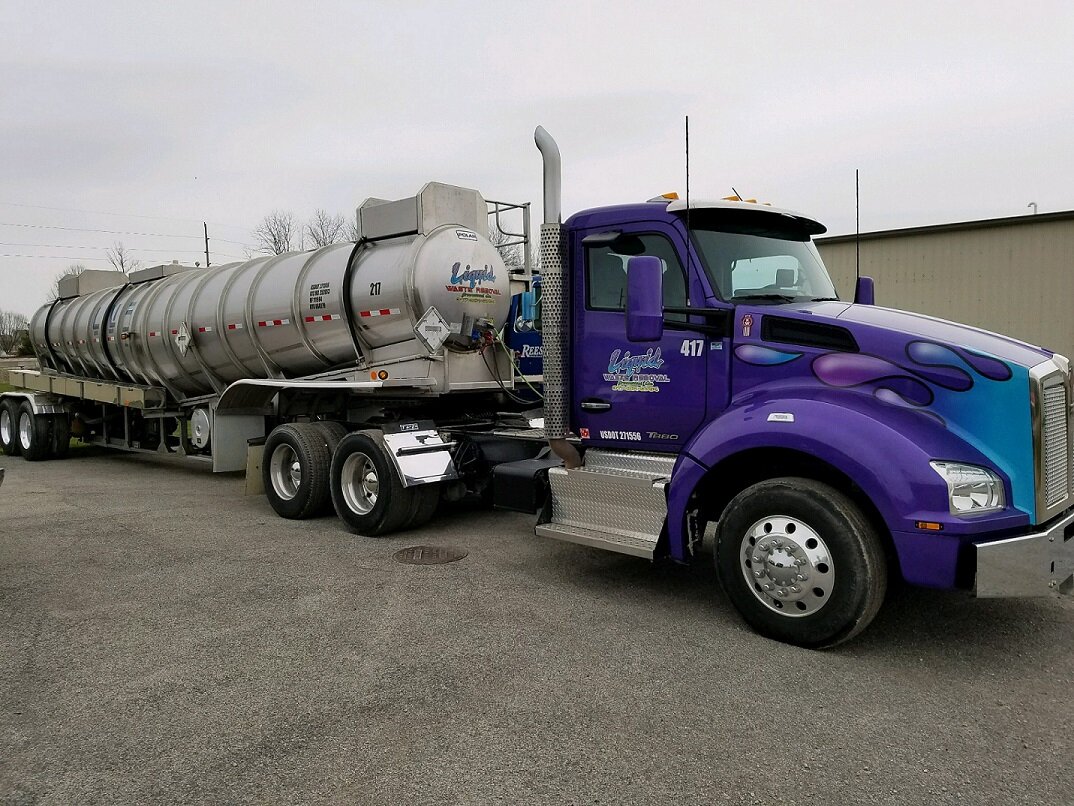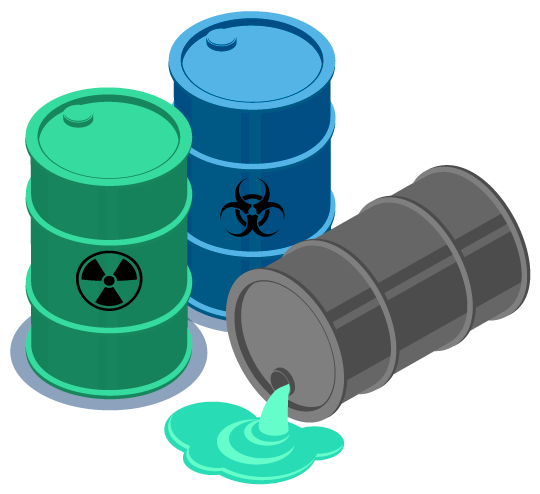Expert Liquid Waste Removal Melbourne: Maintaining Your Atmosphere Clean
Expert Liquid Waste Removal Melbourne: Maintaining Your Atmosphere Clean
Blog Article
Recognizing the Comprehensive Process of Liquid Garbage Disposal: Finest Practices and Environmental Effect Considerations
The management of fluid waste disposal is a diverse issue that requires a complete understanding of numerous ideal methods and their associated environmental influences. From the types of fluid waste produced to the techniques utilized for collection, treatment, and last disposal, each action plays a crucial duty in protecting ecological communities and public wellness.
Sorts Of Liquid Waste
Understanding the numerous types of fluid waste is important for effective monitoring and disposal methods. Liquid waste can be broadly categorized into a number of types, each calling for distinct handling and therapy methods.
Industrial fluid waste usually consists of dangerous products, including heavy metals, solvents, and chemicals, produced during manufacturing procedures. These wastes require stringent regulative compliance to shield human health and the environment. Domestic fluid waste mainly describes wastewater produced from families, consisting of sewage and greywater, which, although much less hazardous, can still posture considerable dangers if poorly handled.
Agricultural liquid waste, consisting of drainage from farms, typically has plant foods and pesticides that can cause ecological degradation if not treated properly. Medical fluid waste, produced from healthcare facilities, includes contaminated fluids such as physical fluids and chemicals, calling for specialized disposal methods to stop infection and environmental contamination.
Last but not least, oil and oil waste, normally created by restaurants and auto sectors, can cause extreme blockages in sewage system systems if not managed appropriately. Recognizing these groups helps with targeted strategies for treatment, compliance with guidelines, and efficient disposal methods, ultimately advertising ecological sustainability and public health safety.

Collection Methods
Effective collection techniques are critical for the appropriate management of liquid waste, guaranteeing that it is collected securely and efficiently prior to treatment or disposal. Various methods are utilized relying on the sort of fluid waste generated, the quantity, and the details characteristics of the waste.
One usual approach is using dedicated collection tanks or sumps, which are created to catch liquid waste at the resource. These systems usually include pumps that facilitate the transfer of waste to bigger storage containers or treatment facilities. Furthermore, mobile collection units geared up with vacuum technology are utilized in situations where waste is generated intermittently or in hard-to-reach locations.
For industrial settings, closed-loop systems can properly minimize spills and leaks, permitting the healing and reuse of fluid waste. It is also important to educate employees on correct collection protocols to minimize risks related to unsafe compounds.
Furthermore, applying routine upkeep schedules for collection equipment guarantees optimal performance and safety and security. The integration of sophisticated monitoring systems can boost collection efficiency by providing real-time information on waste levels and potential dangers. Generally, reliable collection methods are fundamental to lasting liquid waste administration techniques.
Treatment Processes
Therapy procedures play an essential duty in the administration of fluid waste, changing possibly hazardous products into multiple-use resources or risk-free effluents - liquid waste disposal. These processes can be extensively categorized into physical, chemical, click here now and organic techniques, each tailored to attend to particular impurities existing in the waste stream
Physical treatment methods, such as sedimentation and purification, job by getting rid of put on hold solids and particle issue. These techniques are commonly the first action in the treatment chain, effectively minimizing the tons on subsequent processes. Chemical therapies entail the usage of reagents to neutralize hazardous compounds, speed up heavy steels, or oxidize natural contaminants, consequently improving the safety of the effluent.
Organic therapy procedures, including turned on sludge systems and anaerobic food digestion, take advantage of the natural capabilities of bacteria to degrade organic issue. These techniques are specifically reliable for wastewater having eco-friendly pollutants. Advanced treatment technologies, such as membrane filtering and progressed oxidation procedures, are increasingly utilized to attain higher degrees of filtration.
Integrating a combination of these treatment methods not just ensures compliance with governing criteria however also advertises ecological sustainability by recovering valuable sources from liquid waste.
Disposal Options
How can organizations make certain the accountable and secure disposal of liquid waste? Effective disposal options are important for guarding public health and the atmosphere. The primary techniques include land incineration, disposal, and treatment followed by discharge right into community wastewater systems.
Land disposal entails the mindful containment of liquid waste in assigned land fills, ensuring that it does not seep right into bordering dirt or water. Incineration, on the various other hand, topics liquid waste to heats, transforming it into ash and gases, which need correct purification to minimize exhausts. This technique is suitable for contaminateds materials that can not be treated article source through standard ways.
In situations where liquid waste can be treated, organizations may choose for chemical or organic therapy procedures to counteract harmful parts before discharging the treated effluent into local systems. This route typically straightens with governing needs, making sure that the effluent satisfies security criteria.
Ultimately, companies have to conduct comprehensive analyses of each disposal option to identify its stability, considering elements such as waste make-up, regulatory conformity, and prospective threats to health and the environment. By choosing appropriate disposal approaches, businesses can contribute to an accountable waste monitoring strategy.
Ecological Influence
The ecological impact of liquid waste disposal is a crucial factor to consider for companies looking for to decrease their environmental impact. Furthermore, the discharge of neglected or improperly treated waste into surface waters can result in eutrophication, leading to oxygen exhaustion and the subsequent death of fish and various other microorganisms.

To reduce these influences, organizations should adopt finest practices such as implementing extensive waste therapy processes, promoting recycling and reuse, and sticking to governing standards. By taking a proactive strategy to fluid waste administration, entities can dramatically decrease their ecological footprint while supporting sustainable advancement site link objectives. Inevitably, a thorough understanding of the ecological impacts connected with fluid waste disposal is important for educated decision-making and liable stewardship of all-natural sources.
Final Thought
Efficient administration of fluid waste is critical for safeguarding ecological integrity and public health and wellness. Eventually, a comprehensive understanding of liquid waste disposal not just minimizes ecological impacts however likewise fosters a dedication to responsible source monitoring and environmental stewardship.
The monitoring of liquid waste disposal is a complex problem that requires a comprehensive understanding of numerous finest practices and their associated ecological influences. From the types of fluid waste generated to the methods utilized for collection, treatment, and final disposal, each action plays a crucial duty in protecting communities and public health and wellness.The environmental influence of fluid waste disposal is a vital factor to consider for companies seeking to decrease their ecological impact. Inevitably, a comprehensive understanding of the environmental impacts linked with fluid waste disposal is essential for notified decision-making and accountable stewardship of all-natural resources.
Eventually, a comprehensive understanding of liquid waste disposal not only reduces ecological impacts but likewise promotes a dedication to liable resource monitoring and environmental stewardship.
Report this page